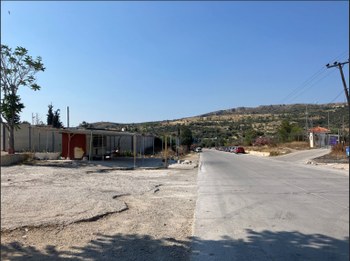
Greece entry-zones - The Route’s starting points
by Valeria Raimondi

From 15 to 24 June 2023, I conducted preliminary fieldwork in Athens, Greece, aimed at laying the foundations and making new contacts in view of the longer period of field research that I will carry out from October to December 2023.
I had already conducted ethnographic research in Athens on migrant squats for my doctoral thesis, from 2016 to 2019. However, over the past four years there has been a radical change in Athens, since the New Democracy government, elected in July 2019, has placed two priorities at the top of its agenda: solving the “migrant issue” and eliminating autonomous political spaces.
Thanks to my previous research I had various contacts in the city and in-depth knowledge of the urban social and political context, in fact, part of my preliminary fieldwork was focused on reconnecting with people from the solidarity movement. Moreover, during the time in Athens I visited the sites of Schistò refugee camp, in the Piraeus area, and the former Eleonas refugee camp, located in central Athens and forcibly evicted by the government in August 2022.
Thanks to field observation, but above all to conversations with various people involved in the migration issue in different contexts, (migrants, activists, researchers, and lawyers) I began to develop a preliminary picture of some of the effects of the tightening of Greek migration policies since 2019.
These interactions echoed the impression I already had walking through the centre of Athens – specifically in the neighbourhood of Exarchia – of a marked weakening of the solidarity movement as well as the near “disappearance” of migrants from the city centre. All over Greece, police have evicted and sealed dozens of political and housing occupations in urban centers, many of which represented the sole access to dignified housing for people on the move.
In general, what emerged from almost all the meetings, as well as from the visits to the camp areas, is that the situation of migrants and refugee camps has worsened in the last four years despite the explicit requests by the European Union to improve the reception system. An in-depth investigation in this sense will be carried out during the next months of research in Greece, which include the continuation of the fieldwork in Athens but also visits to the accommodation facilities located in the border areas with Albania, Macedonia, Bulgaria, and Turkey.